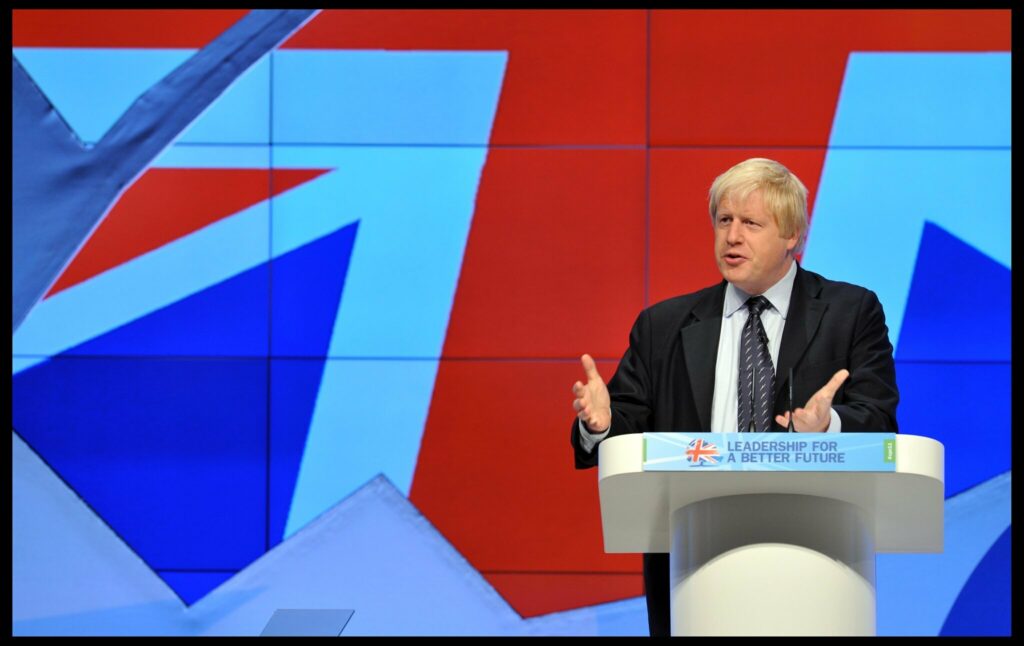The phase-out of petrol and diesel cars is to be brought forward from 2040 to 2035, Prime Minister Boris Johnson today confirmed.
The ban is also now set to include hybrids for the first time, with the potential for an earlier phase-out date than 2035 subject to a consultation.
The PM confirmed the new date in a speech at a launch event for COP26, which is to be held in Glasgow later this year.
Transport secretary Grant Shapps said the government is bringing forward the “already ambitious target” as it wants to go “further than ever before”.
Shapps first announced plans to consult on an earlier phase-out date in October 2019, suggesting 2035 as the date the government should aim for.
The commitment to a new date has been welcomed, with OVO Energy’s director of EVs Tom Pakenham saying it “indicates how the government is serious in” leading the world in transport electrification.
“The new 2035 deadline will accelerate the supply and uptake of electric vehicles, but also give enterprises and the grid enough time to create the solutions needed to effectively manage them.”
However, Helen Clarkson, CEO of The Climate Group, which runs the EV100 scheme, said the date “could still be sooner”, suggesting that 2030 is required to be a global leader or else the UK risks “being out of step with our international peers”.
Likewise, whilst Fiona Howarth, CEO of Octopus Electric Vehicles, described the announcement as “great news”, she stressed the government now has to “stand behind the goal with key measures to back it up”.
Talk of moving the date forward from 2040 has been rampant, with the pledge outlined in the Conservative manifesto for the December 2019 general election.
An earlier phase-out has been recommended by many, including the Committee on Climate Change and the Science and Technology select committee.
The inclusion of hybrids in the ban has also been recommended by co-director of the UK Energy Research Centre Jillian Anable, and the Centre for Research into Energy Demand Solutions.
In response to today’s announcement, Audrey Gallacher, interim chief executive of Energy UK, said the trade body welcomes the move and hopes it signals the start of an “ambitious programme across government, in partnership with business, to enable us to reach net-zero by 2050”, pointing to how Energy UK has “long called” for a 2035 date.
“The UK power sector has been world-leading in reducing emissions and we stand ready to work together to help transform other sectors, like transport and heating, as well as our own.
“And we look forward to the forthcoming Energy White Paper and Budget where we hope to see measures that will allow the necessary innovation and investment to flow – and ensure that as a country we go further and faster towards net zero,” Gallacher added.
Ian Johnston, CEO of Engenie, praised the target as demonstrating Britain’s leadership on climate action.
“But this target needs to be followed with more real action to help make it a reality,” Johnston continued, highlighting the work done by the private sector to deploy charging infrastructure and calling on the government to support infrastructure for remote areas and fund public education.
“Only these actions give today’s policy substance,” Johnston added.
In his speech, the PM also called for international efforts to reach net zero as early as possible through investment into clean technologies and the preservation of natural habitats, as well as measures to improve resilience to climate change impact.
Ahead of his speech, Johnson said: “There can be no greater responsibility than protecting our planet, and no mission that a Global Britain is prouder to serve. 2020 must be the year we turn the tide on global warming– it will be the year when we choose a cleaner, greener future for all.”





